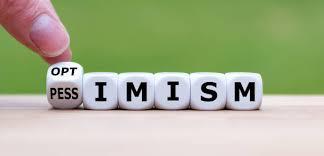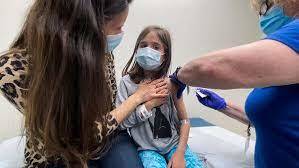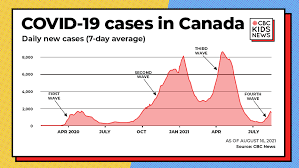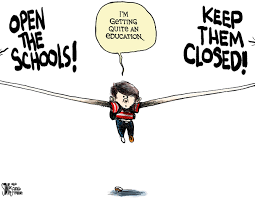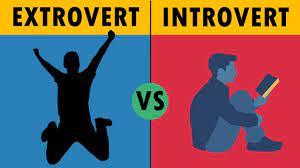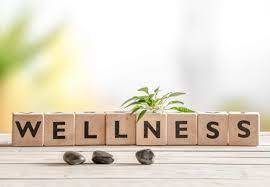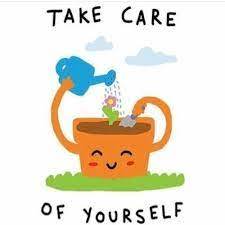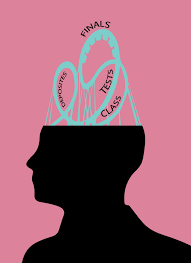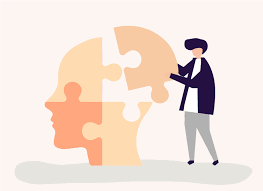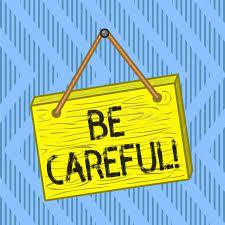Marcia Sirota's Blog, page 12
September 1, 2021
Back-to-School, Pandemic Edition
 Summer’s over:
Summer’s over:It’s September. The summer is over and kids are going back to school. Parents of young children are feeling both relieved – that their children are getting back into a normal routine – and concerned – that the Delta variant is rampant.
Here in Ontario, the messaging has been extremely inconsistent and confusing with regard to kids returning to school. Many parents are still unsure what to expect in their kids’ classrooms.
Will there be a mask mandate that is actually followed? Will there be adequate ventilation? What will happen if one of their children has symptoms of COVID? What happens if one of them tests positive for COVID? What will happen if their kids’ classmates or teacher tests positive? With so many unknowns, it could be a very stressful back-to-school season.
Are you optimistic or pessimistic about the upcoming schoolyear?Some parents are optimistic that everything will be just fine, whereas other parents are extremely concerned. Some parents have made sure to vaccinate all their children who are twelve and over for COVID, but some parents have been holding off on getting their kids vaccinated, which creates a lot of difficulty for the classroom. All the under-twelves are more at risk of catching COVID and with the extremely infectious Delta variant, this could mean some children ending up in hospital.
Back-to-school used to be stressful because of academic or social challenges that children might be facing. Now it’s stressful because of the health risks to children, teachers and school staff. No parent wants to send their child to school, only to end up bringing them to hospital because one of their classmates or teachers gave them COVID.
To vaccinate, or not to vaccinate?It still confuses me as to why certain vaccines are required for attendance at school but not the COVID vaccine. This infection is far more prevalent than some of the other illnesses that children are being vaccinated for, and it’s causing a public health crisis right now.
When I was working in the hospital system in New York City, I was obliged to get vaccinated for hepatitis A and B as well as other infectious diseases. I never questioned it. I didn’t want to get sick at work and I didn’t want to make anyone else sick, either.
When I traveled to Istanbul, Morocco and South Africa, I went to the travel clinic and got vaccinated for the infectious diseases that were endemic to these places. Again, I didn’t think twice about it. I had no interest in taking a chance of becoming infected with typhus, diphtheria or cholera.
I’ve spoken to people who caught malaria while on vacation and who became horribly sick with it. A good friend of mine caught Typhus in Morocco and was hospitalized, where she then contracted Hepatitis B. The friend with whom she was traveling had to take her out of hospital and fly her home in order to save her life. All of this could have been prevented with simple vaccinations.
The fourth wave is upon us:I’m worried about the upcoming school year. The fourth wave is upon us and it’s clear now that it’s the unvaccinated who make up the vast majority of cases of COVID. Those who are fully vaccinated are still susceptible of catching COVID, but they’re far less likely to become seriously ill.
With the Delta variant, younger people in their 30’s and 40’s are making up the largest group of infected individuals and many of the deaths being reported are in this age group.
As a psychiatrist, I’ve always been fascinated by people’s capacity for denial. People have told me that they think COVID is “like the flu” because they caught it and it was a mild case.
Scientifically speaking, one case proves nothing. The number of serious infections and the number of deaths from COVID demonstrate, scientifically, that this infection is a lot more deadly than the flu, and unlike the flu, it can kill young, healthy people.
The fact is, you won’t know how COVID will affect you until it’s too late. I urge all parents to get their children vaccinated as soon as possible; to make sure their children wear masks at school and keep encouraging their kids to practice social distancing and good hygiene.
COVID is a virus that doesn’t care about politics:This issue has become politicized, but a viral illness is not a political entity. It’s a disease. It can be caught by anyone at any time. It can kill you, even if you’re young and healthy. It doesn’t care what you believe. Denying the danger of COVID doesn’t make it less dangerous in the world or to your children.
For a safe and happy back-to-school season, we need to put aside the politics and take this threat to our public health as seriously as it deserves to be taken. Parents love their children and want the best for them. Parents should respect the teachers and staff at their children’s schools, as these people are providing their children with a much-needed education.
For everyone’s mental and physical well-being, let’s put our caring into practice and face the threat of COVID by following the best, scientifically-tested public health practices. This way, your children have the greatest chance of enjoying a healthy, uninterrupted school year.
Sign up for my free biweekly wellness newsletter here for my series on Self-Care for Fall, where you’ll learn simple tips for taking the best care of yourself and your loved ones this 2021 back-to-school season.
And tune in to my ongoing YouTube video series on Coping With Covid.
August 24, 2021
Do People of Colour Face Racism in the Health Care System?
Note: This previous article was updated in August 2021
Black Lives MatterDespite the restrictions of the COVID-19 pandemic, the Black Lives Matter protests are ongoing. And that’s a good thing. It reminds me of the #Time’sUp and #MeToo movement, when things reached a tipping point and there was no turning back. No-one could pretend any longer that there wasn’t a real problem and that things absolutely had to change.
The same has happened since the death of George Floyd at the hands of a Minneapolis police officer. The conviction of Derek Chavin for Mr. Floyd’s murder and his 22-plus year sentence was a rare instance of justice in an otherwise horribly biased situation, in which people of colour in Canada and the US continue to be killed at the hands of white police officers who then face little-to-no consequences.
As a white woman of privilege, I see this moment as an opportunity to listen and to learn, about my own implicit biases and my own assumptions; about all that I take for granted in my own life, and about the lived experiences of people who don’t happen to look like me.
It’s also important to speak out in the best way I can, by using my platform to address the impact of racism on health and health care.
 Racial bias in health care
Racial bias in health careI’ve always felt grateful for living in Canada and being able to benefit from our health-care system. Its principles dictate that health care is for everyone, rich or poor, young or old, BIPOC or white, and in the ignorance born of my own ‘White Privilege,’ I had always believed that this was the case — at least until recently.
Over the past few years I’ve been listening to BIPOC-identified people — whether patients of mine, friends, colleagues or acquaintances — and I’ve been learning about the vast inequities in the health care BIPOC people have traditionally been receiving — even here in good old Canada.
Faiza Amin wrote in CityNews online in 2019 about how racial bias had reached a tipping point in the Canadian health care system, documenting the horrifying story of John River who was treated with contempt at multiple hospitals, as he unsuccessfully sought care over a period of two months for a serious medical condition.
Ms. Amin wrote an earlier article in 2018, documenting the case of Serena Thompson, a black woman with sickle cell disorder, who worried less about how she was feeling during a medical crisis and more about whether she’d be able to receive the appropriate pain medication treatment, because she’d had so many experiences as being labeled and then dismissed as drug-seeking.
Jake Miller wrote an article in Harvard Medicine about implicit bias and the way that people of colour receive poorer medical care than non-racialized populations. Mr. Miller wrote that a study done in 1993 and published in JAMA showed that Latinos with a broken limb were “two times less likely to get pain medicine in a Los Angeles emergency department than whites with similar injuries.”
This same article mentions a 2003 report about racial and ethnic disparities in health care, and quotes the authors of the report as saying that “bias, prejudice, and stereotyping on the part of healthcare providers may contribute to differences in care.”
 Hannah’s 10-year fight for care
Hannah’s 10-year fight for careIn my own experience, a psychotherapy patient of mine – let’s call her Hannah – recently shared a story with me about her own health care journey. She recounted how, as a woman of colour, she had spent ten years trying to find a surgeon who would operate on her uterine fibroids.
By the time Hannah received her surgery, her fibroids had grown to thirty pounds of excess bulk, in and around her uterus, and her bladder had been so severely compromised that it was taking her two hours to relieve herself every morning. Incidentally, I’ve had several white patients over the years who suffered from fibroids and each of these women was scheduled for surgery within a few months of seeing a physician.
Hannah’s experience matches up with that of Mr. River and Ms. Thompson, and what they all have in common is their race. Sadly, the health implications of racism don’t stop at people of color receiving sub-standard care. Evidence is showing that the experience of racism can have an adverse effect on a person’s overall health.
 Racism can make you sick
Racism can make you sickAn article in Psychology Today from June 2020 details how racial discrimination “can contribute to health problems, including depression, anxiety, insomnia, heart disease, skin rashes and gastrointestinal problems –just to name a few.”
The article quotes researcher Dr. Anthony Ong who says that “chronic exposure to unfair treatment or day-to-day discrimination increases the risk for poor health.” Dr. Ong added that “coping with chronic experiences of… mistreatment can elicit a cascade of responses that over time…damage the physiological systems that regulate the body’s stress response.”
Dr. Ong also referred to another of his studies in which people who experienced “racial microaggressions… were more likely to experience poor sleep quality on nights after they reported experiencing mistreatment.”
In the Harvard Medicine article, David Williams, a professor at that university, was quoted as saying that “people who report high levels of everyday discrimination have elevated levels of coronary artery calcification, blood pressure, inflammation, and sleep problems; more rapid decline in cognitive function during aging and premature mortality.”
Of course, as a psychiatrist, it would be remiss of me not to mention the fact that the daily experience — or anticipation — of microaggressions (or overt ones) can lead to mood disorders and stress disorders, such as major depression, generalized anxiety, adjustment disorders and post-traumatic stress disorder.
Depressed While Black:Recently I came to learn about an organization called Depressed While Black. Founded by a mental health activist by the name of Imade, this organization offers support and helps to find black therapists for BIPOC people who are suffering from mental health conditions.
I learned of this organization when I recently interviewed actress and activist, Carlita Victoria, on my Ruthless Compassion podcast. Not long ago founded a group called Darkness Rising Project in response to her own difficulties in having her mental health struggles taken seriously by white practitioners.
Carlita shared with me how near-impossible it was for her find a mental health provider, while in the midst of a suicidal crisis. She also shared that tragically, her story is all-too familiar in the BIPOC community. The discrepancy between the care available to white communities and that available to BIPOC communities is vast.
It’s time to become part of the solutionThese are terrible problems and I’m ashamed to say that despite the decades I’ve spent working in the health care system, I’ve been unaware of them. What I’m seeing now is how easy it is to be ignorant when living a life of privilege and in so doing, unconsciously contribute to the problem.
Today, I am determined to remain ignorant no longer. As the world wakes up to the realities of racism, both systemic and implicit, I will keep on learning and listening and I pledge to do my best to become part of the solution, as opposed to being part of the problem.
Sign up here for my free monthly wellness newsletter to learn all about our Summer of Self-care.
And tune in to my new YouTube video series on various mental health and wellness topics, including Coping With Covid.
The post Do People of Colour Face Racism in the Health Care System? appeared first on Marcia Sirota.
August 10, 2021
Should Blake Be Worried About Katie’s Unresolved Issues With Greg? Probably
Watching the Bachelor franchise is always fun, because it provides an endless stream of fascinating human interactions.
Last night, Katie’s Bachelorette journey came to a close with an engagement to Blake. I wasn’t sure what to think of this ending because the circumstances leading up to it were so bizarre.
Shortly before the end of the show, Greg — who had been Katie’s first choice all along — decided to give Katie an unfair ultimatum. He was on the Bachelorette show so he had to know the rules, but he started demanding that Katie break the rules for him and make it clear that he was her final choice, well before the last rose ceremony.
Katie recognized that this was an unreasonable request, which was why she didn’t give in to it. On the other hand, she did everything but tell Greg that he was “the one” in a desperate attempt to get him to stay, but even so, he wouldn’t have it. If he couldn’t get the guarantee he wanted, he was out of there.
Katie was left so devastated by Greg’s shocking confrontation and departure that she was on the verge of giving up and leaving for good. Then she decided to stay and within the course of one date with Blake, she had decided that actually, he was her person.
Ironically, she then broke her promise to herself of not saying “I love you” until the very end of the show, declaring her love for Blake. She then sent Justin home before their fantasy suite date and sealed the deal with Blake. What a whirlwind. I could be unpacking these dynamics for days.
So many questions:So many questions come to mind. For example, how could Katie keep her promise to herself to avoid saying “I love you” to any of her suitors until the very end, even in the face of Greg leaving, and then break this promise the very next day with Blake?
And, how was it possible that she could flip so quickly from feeling like she was devastated and done and ready to go home to suddenly declaring her love for Blake?
Was she really as over Greg as she insisted? Watching her argument with him on the After the Final Rose show was incredibly uncomfortable and made me strongly doubt it. There was a whole lot of energy there between the two of them. She was so angry at him it makes me think that she still has a lot of feelings for him.
If she was as happy as she says she is with Blake, why would she need to get into a knock-down, drag-out argument with Greg? The argument was going on for so long that finally, the hosts had to wrap it up with the issues still unresolved. Greg was maintaining that he had needed more from Katie and Katie was continuing to accuse him of all sorts of awful things.
Do I think that Greg was gas-lighting her and that he never had feelings for her? Maybe not. What I do think is that he went on the show knowing the rules and then he demanded that Katie break those rules as a way for her to “prove” to him that she loved him. To me, that was simply unfair.
Maybe it’s this unfairness that has got Katie so angry that she still can’t let go. Even so, if I were Blake, I’d feel pretty uncomfortable about the argument he, and millions of Bachelor Nation fans, had to witness.
Feelings don’t just go away:No-one gets that irate and goes on and on about their grievances if they just don’t care.
On After the Final Rose, Katie stated that when Greg left, so did her feelings for him, but that’s clearly untrue.
First of all, the heat coming off her during their argument is proof that there’s still something there between her and Greg. We all know how close love and hate are to one-other. The intensity of Katie’s hatred for Greg makes me wonder if there isn’t a strong residue of love for him, just under the surface of her animosity.
Secondly, it wouldn’t be humanly possible for Katie to have cared so deeply for Greg and then for her feelings to have just disappeared in an instant. She would have needed a good amount of time to process the experience; to grieve her losses, and then emotionally let go of her number-one love object.
And that’s one of the biggest problems with the franchise. There is never enough time for people to deal with their normal human emotions in a normal human way.
They’re expected to open their hearts and fall in love in the blink of an eye; they’re asked to be vulnerable in a heartbeat and risk heartbreak and then just as quickly, get over their losses and move on to the next person. It’s enough to make your head spin.
No wonder Katie has residual feelings toward Greg. She hasn’t had the time or space to process any aspect of her loss. Presumably, she’s been spending most of her time with Blake, growing their relationship, which means that she never got a chance to deal with the crushing disappointments of losing both Michael and Greg within one week.
That’s a lot of unresolved emotion for one little heart to deal with. So, I worry for Blake. As much as he and Katie might care for one another, it’s awfully risky for Katie to enter into an engagement with unresolved feelings for at least one, and maybe two other men.
I hope that Katie does get some time to grieve her losses and to emotionally let go of the other men who she loved so that her heart can be fully open to Blake. I fear that if she is still harbouring any unresolved feelings for Greg (and possibly Michael, as well) it will undermine her ability to be fully present and emotionally available to Blake.
While the Bachelor is great at throwing young, attractive people together and creating situations that are conducive to falling quickly into something that feels a lot like love, the one thing it’s horrendous at is dealing with all the real feelings that arise in the process.
The fight between Katie and Greg is an example of all the unresolved emotions that Katie is carrying. I hope for her sake and for Blake’s that she can deal with this emotional baggage, sooner rather than later. If not, her brand new love affair could be doomed from the start.
_____
Sign up for my free biweekly wellness newsletter here for my series on Our Summer of Self-Care, where you’ll learn simple tips for taking the best care of yourself and your loved ones this 2021 summer season.
And tune in to my ongoing YouTube video series on Coping With Covid.
August 7, 2021
Why You Need To Walk Away From Your Abusive Relationship, Right Now
 Abuse isn’t only physical:
Abuse isn’t only physical:Everyone wants good relationship, whether in their personal life or at work, but sometimes it’s hard to realize that you’ve gotten yourself into a bad one.
If your partner is physically assaulting you, it’s clear that you’re in an abusive romantic relationship; if your boss is constantly screaming at you, it’s obvious that you’re in an abusive professional relationship. But what about the more subtle forms of abuse?
An emotionally abusive relationship can be just as damaging as a physically abusive one, but it can also be more difficult to identify. You’re likely to stick around longer with someone in your personal or professional life who’s abusing you in more subtle ways.
It’s important to recognize the signs of emotional abuse, as this will help you to get away from a toxic lover, colleague or boss, and do it sooner than later.
10 signs that you’re in an emotionally abusive relationship:1. They’re hyper-controlling. It’s their way or the highway, and there’s no room for any disagreement on your part.
2. They’re unreasonable. You can’t negotiate your needs with them because they’re always defensive about feedback and they never seriously consider your point of view.
3. You feel the need to tip-toe around this person. You’re scared of their volatile temper or their propensity to punish you over perceived “offenses.”
4. They flip-flop from super-charming to ice-cold and unfeeling. Their unpredictable behaviour is destabilizing, confusing and utterly manipulative.
5. They undermine your confidence and self-worth. They make you doubt your intelligence, value and abilities.
6. They isolate you from others. They try to keep you away from anyone who would contradict their negative view of you.
7. They guilt you over your self-care. They play the victim card when you stand up for yourself, calling you “abusive” or “controlling” when you set a limit or express displeasure over how they treat you.
8. Their needs always come first. Your needs are seen as foolish, excessive or unreasonable, whereas their needs are always valid and essential.
9. They gas-light you. They constantly pull the rug out from under you and make you think that you’re the one with the problem.
10. They don’t listen. No matter how hard you try, you can’t get through to them.
These are the 10 signs that you’re in an emotionally abusive relationship. If you’re experiencing one or more of these things, you ought to think about why you’re still staying in this relationship.
 Why you need to leave, now:
Why you need to leave, now:If it’s a professional relationship, you might be worried about not finding other work, but the longer you stay in the job, the less confident and competent you’ll feel, so it’s better to get out sooner, when you still have a shred of self-belief.
The longer you stay, the more likely you are to become so demoralized that you live in a constant state of self-doubt.
Abusive workplace relationships never bring out your best. In fact, you might be constantly second-guessing yourself and starting to make stupid mistakes. That’s why you have to get out ASAP.
If it’s an abusive romantic relationship, you might think that this is the best you deserve. It’s not. You might think that there’s no-one else out there for you. That’s totally untrue.
The longer you stay in this relationship, the lower your self-worth will drop and the more willing you’ll be to tolerate the abuse.
Abusive romantic relationships make you increasingly miserable, whereas romance is supposed to make you happy and fulfilled. That’s why you need to get out, immediately.
How to leave:In a professional situation, it’s always best to try and find another position before leaving the one you’re in. Take your time and plan out your exit for the minimum of financial and professional repercussions.
In a romantic relationship you need to ask yourself if your partner makes you feel unsafe. Never put yourself in harm’s way by underestimating their capacity for violence. Too many people die because they’re in denial of their partner’s capacity for harm. If you feel unsafe, find a way to strategically get out while ensuring your physical and emotional security.
The other thing you need to know is that you don’t owe your abuser an explanation — or anything else, for that matter — and they don’t need to understand or appreciate why you’re leaving. It’s best to be as brief as possible and not go into detail, as you don’t want to provide grounds for an argument.
Don’t explain, don’t justify, and don’t wait for their approval. Just get out.
Zero tolerance for abuse of any kind:You should never have to tolerate emotional, physical or any other type of abuse in any of your relationships.
Sometimes, you might think that because you did something wrong before, now you deserve to be mistreated. That’s completely false. No matter what mistakes you might have made, you never deserve to be mistreated.
If someone is angry or upset with you, there are kind and respectful ways to give you feedback. The other person is even free to reject you or to fire you. But, there is no excuse, ever, for someone to mistreat you.
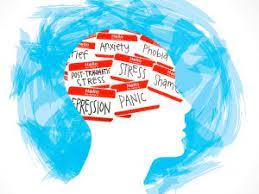 The flexible psyche:
The flexible psyche:Our psyche is tremendously flexible and it adapts to our environment. If we’re constantly being affirmed and supported, we develop greater self-confidence, competence and self-worth. If we’re constantly being criticized and undermined, we develop insecurity, inadequacy and anxiety.
The problem is that the longer you stay in an abusive relationship — whether personal or professional — the more you start to believe the criticisms and the put-downs.
That’s why the sooner you leave, the better. You can escape the mistreatment and have a fighting chance of recovering your self-worth, finding happiness and fulfilling your true potential.
___
Sign up for my free biweekly wellness newsletter here for my series on Our Summer of Self-Care, where you’ll learn simple tips for taking the best care of yourself and your loved ones this 2021 summer season.
And tune in to my ongoing YouTube video series on Coping With Covid.
July 24, 2021
Constructive Confrontation: A Necessary Skill in the Post-Pandemic Era
 Anticipatory dread:
Anticipatory dread:Confrontation. Doesn’t the word send chills down your spine? When you contemplate talking to a friend, family member or romantic partner about something they did to upset you or something you need them to do differently, does it fill you with dread?
You might imagine the other person becoming upset or angry — even rejecting you. You might imagine saying the wrong thing and inadvertently causing offense.
There’s not a lot of information available these days about how to engage in constructive confrontation — the type that’s more likely to result in a good outcome than a bad one, but this is an essential skill as things are opening up, post-pandemic.
These days, when your interpersonal skills might be a bit rusty, it’s more important than ever to communicate your needs and feelings in the most constructive manner possible.
There are two criteria required for a successful confrontation:The person delivering the message has to be clear, concise, kind and respectful;The person receiving the message must be reasonable, vs. hostile, defensive, paranoid or crazy-making.
Constructive confrontation depends on both the person speaking and the person listening. If either one of you doesn’t meet the above criteria, the confrontation won’t be successful.
If you want to confront someone and you want it to go well, you need to take responsibility for how you deliver your message in order to maximize the other person’s ability to receive it, and you need to ask yourself how likely it is that the other person will respond appropriately.
People you shouldn’t confront:If you sense that the other person is likely to react badly to confrontation, it’s better not to confront them at all, and you might want to reconsider being associated with someone who is incapable of receiving constructive confrontation in a reasonable manner.
This type of person will never be able to respond positively to your needs or feelings, and you’re likely to be constantly frustrated in your dealings with them.
A more extreme example of an unreasonable response to confrontation is someone who you’re concerned will become violent or vindictive.
If the thought of confronting a particular person makes you fear for your personal safety, or if you imagine the other person engaging in a vendetta against you to “punish” you for having “dared” to confront them, this is clearly a dangerous person from whom you should immediately distance yourself.
The silver lining of confrontation is that it’s a test of the other person’s ability to be an ally. When you foresee confrontation with them being unsafe, it means that they’ve failed the test and that most likely, they should be avoided.
What do you want out of the confrontation?
Once you’ve ascertained that there’s a good possibility of the other person being open to hearing what you have to say, it’s time to ask yourself what you want out of the confrontation.
People often tell me that what they want is for the other person to understand how they’d been hurtful; to feel bad for what they did, or to drastically change the way they behave.
The thing is, there are limits to confrontation. It can clarify where you’re coming from, but it can’t make the other person change how they feel, think, or behave.
This is up to them and you’ll only know the outcome of the confrontation by observing the other person’s behaviour, during the confrontation and moving forward.
Why do people fear confrontation?
I’m thinking that discomfort with confrontation comes from previous attempts that didn’t go well. Maybe you didn’t go about it properly; maybe the other person was unreasonable?
The good news is that even if confrontation was problematic for you in the past, it can become a good tool for relationship-building, now and in the future.
You don’t have to be so fearful of confrontation. You just need to know how to do it the right way, and how to identify those people who might not be willing to hear what you have to say.
The pitfalls of avoiding confrontation — anger and alienation:When you avoid confrontation and hold back your feelings, they tend to accumulate internally, transforming into resentment and even anger.
Inevitably, the anger will leak out in the form of snide remarks or passive-aggressive behaviors. Sometimes, it can explode outward in a tirade against the other person.
Avoiding confrontation is meant to prevent conflict, but suppressing your feelings will almost always backfire. If you don’t leak anger or explode in frustration, the relationship could fall apart from a lack of honest communication.
Avoiding confrontation makes you emotionally disconnected from other people. When you aren’t being authentic about what’s bothering you, it creates an invisible wall, ultimately leading to alienation.
The key is learning the skill of constructive confrontation, but this easier said than done. First, you’ll have to overcome your discomfort with saying something the other person might not want to hear and risking possible rejection.
The fear of rejection:
You should know that as long as you’re doing it right, a caring, reasonable person won’t abandon you for confronting them about an issue.
If someone truly cares about you and is more or less emotionally intelligent, they’ll be responsive to constructive confrontation. Anyone who gives you a hard time has just shown you that they’re incapable of meeting your needs.
The benefits of constructive confrontation:
Constructive confrontation can foster greater intimacy and trust. Sharing your needs and feelings can deepen your connections and when confrontation results in a good outcome, it deepens the trust between people.
Five tips for successful confrontation:
1. Start by being affirming. Let the other person know how much you value the relationship, and that this is why you’re sharing your concerns.
2. Don’t be accusatory. Make “I” statements like, “When you did such-and-such, I felt uncomfortable (or unhappy, or upset, or angry).”
3. Avoid absolutes: Don’t say, “You always do X,” or, “You never do Y.” It puts the other person on the defensive. Instead, say, “I didn’t like it when you did X,” or, “I’d really like you to do Y.”
4. Choose an appropriate time and place. Do it somewhere quiet and private, to avoid embarrassment, and hold off if the other person is not up to receiving feedback.
5. Pay attention to the other person’s reaction. They need to accept your feedback and then change their behaviour. Ask yourself if they’ve passed or failed the test.
Time to hone those emotional intelligence skills:
Things are opening up and we’re all getting back in touch with the people in our lives. That means you’ll be negotiating your needs with friends, family and loved ones. Confrontation can be a daunting proposition but like anything else, the more you do it, the easier it will become.
After a few successful attempts at talking to people about the things that are important to you, your confidence will grow and constructive confrontation will become second nature to you.
The people in your life will get to know you better, and you’ll be able to see who you can trust, and who you need to leave behind.
___
Sign up for my free biweekly wellness newsletter here for my series on Moving into Summer with Good Self-Care, where you’ll learn simple tips for taking the best care of yourself and your loved ones this 2021 summer season.
And tune in to my ongoing YouTube video series on Coping With Covid.
July 19, 2021
Effective Communication: The Super-Skill for the Post-Pandemic Era
Over the years, I’ve written a lot about effective communication. These skills are more vital than ever before, as we’re living in a time of rampant misinformation, misunderstanding and miscommunication. And now that we’re starting to come together after many months of social isolation, effective communication is essential if we want our relationships to thrive.
Effective communication is being able to simply and concisely convey the message you want to get across as well as understanding exactly what someone else is telling you. It’s about speaking clearly and listening carefully. The root of the word “communicate” is “commune,” or come together.
Effective communication is just as much about hearing as it is about being heard. Too often, we’re so focused on whether the other person is listening to us that we forget to listen to them. But, if it’s a one-sided conversation it’s not communication, it’s badgering.
Mistake #1: Making assumptions:One common communication error is to make assumptions and jump to conclusions. Rather than paying attention to what the other person is saying, we finish their sentence in our mind and come to our own conclusions.
As a psychotherapist, there have been many times when I’ve started a sentence with a patient and they’ve finished it for me, but it wasn’t at all what I was going to say. My patient assumed that I was going in one direction when I was going in another.
In a therapy session where good communication is one of the goals, it’s not so difficult for the speaker to note the listener’s error and to clarify his or her intentions. However, if the listener is jumping to the wrong conclusions elsewhere, it could lead to unfortunate misunderstandings and unpleasant interactions.
We may have a sense of where someone is heading in the conversation but it’s always better to be patient and not anticipate their intention.
In your communications with others, it’s important to be open-minded and allow the other person to make their point. Otherwise, you’ll be hearing something that they aren’t saying.
Effective communication has to be clear and direct. You can’t expect the other person to read between the lines or guess at what you’re trying to express. Otherwise, you risk alienation and conflict.
For the same reason, you can’t pretend that you get it when you don’t. It’s no use to you if the speaker thinks that you’re on the same page when you’re actually reading a whole other book.
Mistake #2: Being too vague:A mistake that people make far too often in communication is being too vague. You have to say exactly what you mean and not simply hope that the other person gets it. If they don’t hear exactly what you intended to say, they’ll never be able to give you what you want.
Whether it’s in a friendship, a romantic relationship, or with members of our family, we will often make vague statements when the other person has done something to upset us.
We’re afraid to be authentic because we’re afraid that this person will get angry at us or even reject us. What we need to know is that if someone gets angry at us for telling them that they’ve upset us, they have just shown us that they are not a reasonable person.
You need to know that there’s nothing wrong with telling someone that something they did upset you. A reasonable, respectful, caring person will not be defensive about it. They will not get angry at you and they won’t reject you over it.
A reasonable, respectful, caring person will feel bad for having upset you and they’ll apologize for having upset you. They’ll tell you that they’ll try to do better, moving forward.
In a sense, telling someone that they made you upset is an excellent test to see if someone in your life is reasonable, respectful and caring. If they become angry, defensive or rejecting, or if they deny that they did it or tell you that you’re over-reacting, they have just FAILED THE TEST.
This person’s behaviour has nothing to do with you. They simply are incapable of responding in a reasonable way to normal feedback. As long as you didn’t attack them when you told them what they did to upset you, their reaction is not about you.
You shouldn’t feel responsible if the person fails the test. That’s on them. They’ve just shown you that they’re unable to handle feedback. They’ve also shown you that you’ll never be able to get your needs met in this relationship — because of them, not because of you.
Mistake #3: Holding in anger:Another mistake people make in communicating is keeping things inside when they’re angry. We’re afraid to express our anger because the other person might not like it. We hold it in for as long as we can but then inevitably, it leaks out in passive-aggressive behavior or an emotional outburst.
 It’s always better to politely and respectfully tell the other person how you feel. Passive-aggressive behavior is extremely off-putting, as are angry outbursts.
It’s always better to politely and respectfully tell the other person how you feel. Passive-aggressive behavior is extremely off-putting, as are angry outbursts.Your attempts to avoid an unpleasant confrontations backfire when you hold in your anger. Also, you need to know that if someone can’t tolerate your anger it means that they aren’t someone who you should associate with.
Of course, expressing anger should never be done with a raised voice. That’s unnecessary and overly aggressive. It’s enough to say, “I’m angry at you for X,” or “When you did Y, it made me angry.” These types of statements are clear and direct but not aggressive.
Expressing your anger this way helps you see that if the other person reacts badly, it’s not because of your delivery — it’s because this person is unable to tolerate any expressions of anger. They have just FAILED THE TEST.
And if they have failed this test, it means that you’ll never be able to work through problems with this person, because they’ll always shut you down when you try to tell them that they made you mad.
The appropriate way to respond to your telling them that they made you mad would be with statements like, “I’m sorry, I didn’t mean to upset you,” or, “I’m sorry. I won’t do it again.”
If they try to talk you out of your anger, or if they tell you that you have no right to be angry, or if they accuse you of abusing them or controlling them with your anger, they are not someone you want to associate with.
One caveat: expressing anger in the workplace is a completely different situation. There, it’s often inappropriate to be clear and direct; especially with regard to your supervisors.
At work, you need to be much more clever and subtle, so as not to cause offense or risk jeopardizing your position. In the workplace it’s best to err on the side of caution and not engage in confrontation unless it’s strategically done.
Authentic communication can be anxiety-provoking:From the above, you can see that the main reason why people don’t communicate effectively is out of fear of rejection. Also, it can be very disappointing to discover that a person you like or admire, or who is a member of your family, isn’t someone you can be open with.
On the other hand, if you aren’t clear and direct, the other person won’t know what you think and feel and you’ll never get your needs met. The relationship will remain superficial and even frustrating. There’s nothing good in that. It’s better to be honest and authentic. If you’re disappointed, it’s better to have this happen early on than to spend years with someone who can’t negotiate with you in good faith.
Effective communication allows other people to really know you. This way, if they like you and want to be around you, you’ll be sure that it’s because of who you genuinely are. If they try to shut you down, they have failed the test, and you know that you’ll never get your needs met so you don’t have to waste any more time on them.
When you don’t communicate effectively, problems arise: People might choose to be with you because they think that you’re someone you’re not. Or, selfish, hurtful people will be with you because they are able to get away with their bad behaviour. This can lead to major misunderstandings and frustrations and possibly big blow-outs when the truth about how you actually think and feel finally comes out.
You certainly don’t want to marry someone based on them assuming that you’re someone that you’re not, and you don’t want to sign up long-term with a company and invest years of your life with them because you assume that their philosophy is aligned with your own when in fact, it’s not.
Mistake #4: Clumsy confrontation:Part of effective communication is healthy confrontation, which is when you tell the other person what they’ve done to upset or anger you and what you need them to do, instead.
One of the biggest mistakes people make in confrontation is in being overly aggressive. If you communicate in a clumsy manner, it’s impossible to know if the other person has failed the test because they’re unreasonable, or if it was because you had gone on the attack.
Saying things in a polite, respectful manner is the only way to guarantee that the other person’s reaction is not tainted by your inappropriate delivery.
Another type of clumsy confrontation is when you make absolute-sounding statements like, “You never do X,” or “You always do Y.” The problem with these statements is that they immediately put the other person on the defensive and then it’s impossible to know whether or not they’re capable of hearing you and responding to your needs appropriately.
It’s always better to make “I” statements, as these build bridges rather than create defensiveness on the part of the listener. You can say, “When you did X, I felt hurt (or angry), or “When you didn’t do Y, I felt disappointed (or let down).” You can add that if the person continues to make you feel hurt, upset, disappointed or let down, you guys are going to have a problem.
“I” statements don’t tend to make the other person feel blamed or coerced. If the other person becomes hostile or defensive, you can be reassured that it’s not because you delivered the message clumsily but because the other person isn’t being reasonable, respectful or caring toward you. They have just FAILED THE TEST.
The super-skill we all need now:Now that we’re emerging from the darkness of COVID-19, and once again starting to connect with friends, family and romantic partners, effective communication is the super-skill that will enable us to form and maintain the best possible relationships.
Effective communication can show us who we’re dealing with and empower us to walk away from anyone who is incapable of responding to our feelings and needs in a reasonable, respectful, caring manner.
___
Sign up for my free biweekly wellness newsletter here for my series on Moving into Summer with Good Self-Care, where you’ll learn simple tips for taking the best care of yourself and your loved ones this 2021 summer season.
And tune in to my ongoing YouTube video series on Coping With Covid.
July 10, 2021
How Introverts and Extroverts Can Start Safely Socializing Again
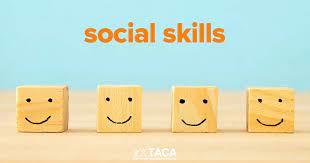 Socializing is a skill:
Socializing is a skill:With the mass distribution of vaccines against COVID, the world is slowly re-opening. Many of us have spent the last sixteen months relatively isolated. Those who live in a family unit have only been in contact with the same few people all this time. Those who live alone have had minimal contact with anyone.
Socializing is a skill that we develop over time and it’s a skill that we can lose if we aren’t practicing it. After all this time with hardly any in-person socializing, our social skills could be pretty rusty. How do we get back to enjoying a healthy social life after being out of practice for so long?
Before I answer this question, I want to talk about the different reactions of introverts compared to extroverts to many months of forced isolation.
Introverts vs. extroverts:I have a few patients who are extreme introverts or very socially awkward. For these individuals, all the time alone has felt like something of a relief, because they didn’t have to struggle with trying to navigate the ins and outs of social interactions.
Unfortunately, these people need all the practice they can get in developing and maintaining healthy relationships. All this time on their own has set them back considerably, and they’re likely to find themselves that much more awkward and uncomfortable in their upcoming in-person interactions.
They could be tempted to withdraw even further, avoiding the stress of having to start building their skills all over again, but this is not a healthy choice. Even the socially awkward need human contact and intimacy.
Introverts need to push themselves to get back out there:For them, it’s going to take a lot of self-discipling to push themselves out of the comfortable shell they’ve crawled into, and to start trying to connect with others. I’m starting to have talks with these patients, helping them to more comfortably navigate their re-entry into the world of in-person socialization.
For many extroverts, the isolation has been agonizing. Someone I know is a highly social thirty-something who lives alone in a small studio apartment. She has suffered terribly from the COVID restrictions and now she’s very excited about getting back to her previously active social life.
For people like this, the temptation could be to overdo it – to stay out too late, drink too much, and in general, neglect their self-care. But going from zero to one hundred so quickly can be a shock to the system. Also, extroverts can get out of practice as much as the introverts do.
Everyone who socializes has a repository of social knowledge and social self-care techniques. These skills might have been forgotten or buried deep-down, over the past sixteen months, which could lead to some poor social choices and some potentially distressing consequences.
Extroverts need to pace themselves:It’s better for the extroverts to take things slowly and somewhat cautiously. As much as they’re dying to get out there and connect with others, they need to give themselves some time to remember and rebuild their social self-care skills in order to socialize safely – on both a physical and emotional level.
One thing I see a lot in people who have been isolated for a long time is the tendency to be overly intense when a social opportunity arises. They’re so desperate to commune with someone else that they might over-share and reveal things that they later regret having said.
Or they might become too close, too soon, before they really know the other person and before they know if they can trust them. They might be developing close bonds with the wrong people in their rush to connect and this could result in them getting hurt.
Some people could be jumping into sexual or romantic relationships in their desperation to have some loving contact. Again, it’s advisable to take your time and get to know the other person. Maybe they’re a decent human being but maybe they’re a predator who is capitalizing on everyone’s sudden desperation to connect and who is ready to exploit, abuse and gas-light you.
Our social muscles get flabby like our biceps and deltoids:The gyms have been closed for many months. If you used to be a regular but haven’t been working out lately, you’re going to be out of shape and your muscles will be stiff and flabby. You’re going to have to get back into the gym and gradually, carefully build up your strength and your flexibility. If you push it too hard or too fast, you’re probably going to get injured.
The same applies to your social skills. You’re going to have to slowly rebuild these abilities. If you jump in to quickly or too deeply, you’re likely to get hurt, emotionally and/or physically.
All the social restrictions and isolation brought on by the pandemic have wreaked havoc on our social lives. Many of us don’t even realize how hard it has been on our health.
Isolation is bad for our physical and emotional well-being:Isolation can cause an increase in anxiety, depression and addiction – as we use food, substances or other behaviours to self-soothe or distract ourselves from our painful loneliness.
Isolation is bad for our physical health as well. It depresses our immune system and leaves us more susceptible to inflammatory conditions and to chronic illness. Studies have shown that socially isolated people live shorter lives compared to those who have a strong social support system. We all need to be with one-another – we just have to get back to it in the right way.
As I said above, the two main reactions to the many months of isolation are increased social withdrawal and jumping back into socializing too fast. We need to be aware of our tendencies to do one or the other and instead, find that balance. For extreme introverts, it means pushing yourself to gradually re-enter the social scene. For extroverts, it means holding back to some extent and gradually getting back into it.
If we can find that happy medium is starting up our social lies again – the Goldilocks principle of not too cold and not too hot – we can begin enjoying all the benefits of increased socialization with a minimum of the pitfalls that this might entail.
___
Sign up for my free biweekly wellness newsletter here for my series on Moving into Summer with Good Self-Care, where you’ll learn simple tips for taking the best care of yourself and your loved ones this 2021 summer season.
And tune in to my ongoing YouTube video series on Coping With Covid.
July 4, 2021
You’ll Pay a High Price if You Ignore Your Self-Care This Summer
Summer is here and it’s the perfect time for a health and wellness tune-up. We’ve been cooped up indoors for so long that we could all benefit from a check-in. It will help us to clarify what we need in order to feel better, moving forward.
Whether you’ve decided on a staycation or a vacation this summer, you can decide to take that time to prioritize your self-care. The sun is out, literally and figuratively, and we’re all emerging from the darkness of Covid
The past fifteen months have been incredibly stressful – filled with pain, anxiety and loss. It would be good to get in touch with ourselves and tune into our needs. And it starts with carving out the time.
Parents have never been so stressed:If you’re a parent, you’ve spent the past year and a bit wearing multiple hats: teacher, therapist, and home-based worker. It’s exhausting. But children’s mental health has been sorely stressed throughout the pandemic and it might be difficult for you to feel entitled to self-care.
What you should know is that you matter, too, and also, that taking care of yourself can only make you a better parent to your kids.
Singles have never been so lonely and isolated:
If you’re a single person living alone, the loneliness might have been oppressive because of the social distancing. It could be easy, once you’re vaccinated, to go a bit crazy, trying to make up for lost time. Or maybe your loved ones are putting pressure on you to spend time with them.
After so much time alone, it’s a good idea to take it slowly and adjust to the changes gradually. It’s important to try and maintain some balance, not getting distracted by all the social opportunities and forgetting about your own needs.
The 8 basics of self-care:
When I think about the basics of self-care there are eight factors that need to be considered:
NutritionSleepExerciseLeisureCreativityStress reliefSpiritualitySocial connections
If you want to achieve optimum wellness, you’re going to have to take care of yourself this summer. You’ll need to start by tuning in and asking yourself tough questions about each of these areas.
Are you eating healthy food, in moderation? Are you getting enough good-quality sleep? Are you moving your body and keeping it fit and limber? Are you engaging in leisure activities that bring you joy? Are you pursuing any type of creativity, whether it’s art, crafting or a hobby?
Are you making sure to de-stress, whether through yoga, tai chi, breathing exercises, meditation or mindfulness? Are you connecting deep within yourself or to a higher power, whether on your own, in a religious setting or out in nature? Are you keeping your relationships strong and meaningful? All of these things are essential in maintaining wellness.
Understanding what self-care means:
Sometimes, we misunderstand the nature of self-care. It doesn’t mean self-indulging in food or counter-productive behaviours. It doesn’t mean self-medicating with alcohol or other substances.
Real self-care means loving yourself but not spoiling yourself. It means considering the consequences of your actions.
For this reason, there are three things to remember this summer:
Pace yourself – don’t go from zero to one hundred, or you’ll risk getting overwhelmed.Balance the need to let loose with the need to be safe. The variants are here and they’re highly infectious.Respect yourself and acknowledge your own limits and vulnerabilities. Don’t let anyone push you to do things you’re not comfortable with.
The other importing thing to know about self-care is that there’s a big difference between wellness and immediate gratification. Wellness is about seeing the big picture and understanding that pleasure isn’t the same as health or happiness.
For example, being hung-over or sick from over-indulging the night before will make you unable to function at home and at work and ultimately it will deprive you of happiness and success.
If you start going on a sex spree after months of enforced celibacy, you might be in for some nasty surprises.
The bottom line is that if you go wild because you’ve been cooped-up for so long, there will be consequences. if you focus on self-care as opposed to immediate gratification, you’ll be healthier, happier, and ready for success over the summer and as life gradually re-opens
____
Sign up for my free biweekly wellness newsletter here for my series on Moving into Summer with Good Self-Care, where you’ll learn simple tips for taking the best care of yourself and your loved ones this 2021 summer season.
And tune in to my ongoing YouTube video series on Coping With Covid.
June 25, 2021
A New Wave of Mental Stress Being Triggered by the Delta-plus Variant
I was so excited to get my second vaccine, this month. Finally, I thought, life can start opening up again. And then I started hearing about how the Delta-plus variant has been infecting fully-vaccinated people and my happiness dissolved.
It turns out that this new “variant of a variant” is extremely infectious and can penetrate the defenses of people with supposed full immunity. So far, the infections are mostly mild or asymptomatic, but it’s entirely possible that an eventual variant, let’s call it “Delta double-plus,” could take on a more deadly form. Knowing what I do about viruses, and the way they mutate, this scenario is not so far-fetched.
Thinking about the possibility of a “double-plus” variant makes me kind of nervous, and it takes me from a post-vaccine high to a new emotional low. But this see-saw of emotions has been a common experience for me, throughout the pandemic.
There’s been bad news, then a bit of good news, followed by more bad news, then some good news, and then even more bad news. I feel like we’ve all been on an emotional roller-coaster, equivalent to a ride on the Yukon Striker in Canada’s Wonderland.
Resilience has its limits:Human beings are generally pretty resilient. We’re usually quite adept at handling stress, as long as too much of it doesn’t pile up all at once. One thing that really helps us deal with stressful situations is having enough time to adjust to a new situation.
When a situation is as rapidly changing as this pandemic, we’re deprived of this adjustment time and we start to feel overwhelmed.
I’n sure I’m not the only one experiencing an emotional roller-coaster these days. I have a sense that many people will be experiencing a new wave of mental stress triggered by the Delta-plus variant.
I’m not alone in feeling the a high of being fully-vaccinated, or the only one delighted to hear about an earlier re-opening in Ontario, so I’m sure I won’t be the only one feeling super-bummed-out by the news of this new variant, either. We could all be plunged to a new low.
Being a psychiatrist and someone who has spent decades practicing good self-care, I’m fairly confident that I’ll cope well enough with this latest disappointment, but what about the average person who doesn’t have as much experience in managing stress?
Constantly changing news can be enormously stressful. The ups and downs of the current news cycle give us no time to emotionally process or adjust to all the changes in our situation.
When the emotional roller-coaster is combined with the other stresses of the pandemic, such as social isolation, insecurity and loss, it can lead to something called a stress disorder.
One common stress-related condition is what’s known as an adjustment disorder. Typically, it involves a dysfunctional reaction to a highly stressful situation.
Adjustment disorder:Symptoms of an adjustment disorder could include irritability, poor sleep, fatigue, a disrupted appetite, a lack of interest in our usual activities, or feeling unable to cope with even minimal stress.
It can involve an inability to make decisions, a lack of enjoyment, withdrawing from other people, poor concentration and “brain fog,” and even the urge to self-sooth in counterproductive ways, with overeating, excessive alcohol intake or drug use.
Another dysfunctional coping strategy to extreme stress is denial. It comes from the unwillingness to accept an unpleasant reality because it feels overwhelming.
People in denial about the risks of the new variants will go and socialize inappropriately, putting themselves and their loved ones at risk for becoming ill or dying.
Some of these individuals are engaging in denial because they feel that they just can’t take anymore bad news. They convince themselves that everything is fine. They have the two vaccinations, so they tell themselves that they’re indestructible; the variants aren’t important; life is back to normal — it just has to be!
Denial or dread:I understand what these people are going through. It’s incredibly difficult to have our hopes raised and then dashed, over and over again. Some people, however, experience the opposite of denial. after taking in so much bad news they go into a constant state of dread.
For these individuals, once they’ve had so many of their highs dashed, they’re no longer able to enjoy the better times because they don’t trust that these times will last. That means that these people can never actually relax and feel safe or comfortable. They’re always on edge, waiting for the next axe to drop.
The emotional toll of being on a roller-coaster:Our governments and public health departments have been pretty good at sharing information on how to take care of our physical well-being but they haven’t been so good at helping us address our emotional well-being. No-one has been talking about the toll taken by the repeating cycle of good news, bad news, good news, and more bad news.
It’s so important right now to recognize if you’re feeling overwhelmed, angry, absent-minded or apathetic, or if you’ve been turning to addictive behaviours to self-soothe.
Help is available and you shouldn’t feel embarrassed to reach out. These are unbelievably stressful times; made even more so by the constantly shifting sands under our feet.
Try to prioritize your emotional self-care and feel free to speak to a friend, a counselor, or a member of the clergy to help you cope with the mental stress that the new Delta-plus variant is causing you, and everyone around you. Don’t suffer in silence!
Resources:The phone number for the Distress Centres of Greater Toronto is: 416-408-4357. The Canadian Mental Health Association — CMHA — toll-free number is 1-800-875-6213, or you could go online to info(@)Ontario.cmha.ca
____
Sign up for my free biweekly wellness newsletter here for my series on Moving into Summer with Good Self-Care, where you’ll learn simple tips for taking the best care of yourself and your loved ones this 2021 summer season.
And tune in to my ongoing YouTube video series on Coping With Covid.
June 19, 2021
How Do You Plan to Socialize This Summer?
 Summer is finally here:
Summer is finally here:Summer has arrived and with it, a lessening of the COVID restrictions. Here in Canada, there’s minimal guidance about how to socialize with people outside of our own households.
One important issue is risk tolerance, because it’s different for everyone. Some people have a low tolerance for health risks and are extra-cautions. Other people have a higher tolerance and are somewhat less vigilant. Some people can tolerate a whole lot of risk.
As a person who tends to be more cautious around health risks, I’m not comfortable socializing with people who are a lot less cautious, because I see them as more likely to give me or my loved ones COVID. When we’re thinking about who to hang out with over the summer, risk tolerance should definitely factor into our decisions.
Another issue in deciding how we socialize this summer is vaccine status. Some people are fully vaccinated, some have received their first dose of the vaccine and some aren’t vaccinated at all. Now that it’s summer, how do we go about socializing, taking into account these three distinct groups?
Being extra-cautious, I’m choosing to hang around out of doors with people who’ve had at least one dose of the vaccine. Indoors, I’m happy to socialize with fully-vaccinated people.
Who can we trust?Which brings me to the notion of trust. There are people who I trust completely and people who I don’t trust so much. The important thing to note is that this has nothing to do with love. There are people I love dearly who I don’t really trust and people I don’t love who I totally trust.
A colleague talked about his elderly mother the other day. They love one-another but he’s frustrated that she repeatedly ignores the Covid-19 protocols. No matter how much he adores his mother, if he can’t trust her to keep herself safe, he can’t trust her to keep him safe, either.
It’s sad not to be able to trust those who we love but it’s disastrous to trust those who aren’t trustworthy and then someone gets sick or even dies as a result of this misplaced trust.
Trust circles:We’ve talked about bubbles during the pandemic. I want to talk about trust circles. These are the people who we trust to keep themselves and us safe this summer. I’m thinking seriously about who’s in and who’s on the outside of my particular trust circle.
I’ve just received my second vaccine and I’m excited to socialize more. Still, I know that the vaccines aren’t one hundred percent effective and I don’t fancy getting sick, even with a mild case of COVID. That’s why I’ll only be hanging out with people from my trust circle.
That same colleague described how his sibling invited their mother to a big party, last summer and of course, his mother attended. I asked him how he would have felt toward his sibling if this party had resulted in his mother becoming seriously ill with Covid. He couldn’t even find the words to comment on such a horrible scenario.
When we love someone, we want to trust them, but it doesn’t mean that we can. And when we do trust them and something terrible happens as a result, there’s a double injury: the pain of our trust being violated, and in the case of the pandemic, the pain of someone becoming sick with COVID.
That potential for a double injury should make us all think twice about whom we include in our trust circle, this summer.
It’s been more than fifteen months since the first shut-down, and the most recent one was pretty brutal. I haven’t seen my hairdresser in over nine months. I haven’t seen my friends and family in the US in more than eighteen months. My baby nephew turned two in June and I haven’t held him since he was five months old.
It’s not time to drop your guard:I miss my loved ones, but that isn’t going to make me drop my guard. I plan on doing things right, staying safe and not dropping my guard while I socialize this summer.
I remember studying history in high school and feeling really sad reading about soldiers who died just days before the end of a war. Equally, I would be devastated if myself or a loved one were to contract Covid, right at the end of the pandemic.
For some of us, there’s considerable social pressure from friends and family to celebrate holidays, birthdays, or other special events together. I’ve definitely felt some push-back over my repeated refusals to dine indoors with another family over the winter.
Now that it’s summer, how do we deal with this pressure? What if we don’t want to attend a large backyard barbecue because we don’t know if all the people attending have had at least one vaccination? What if we don’t want to go for a meal indoors if other guests can drop in at any moment and we have no idea about their vaccine status? What if we’re being told that our reactions are “paranoid?”
Know yourself:My answer is this: It’s important to know yourself and listen to your own inner voice. Don’t let anyone pressure you into doing anything that doesn’t feel right. Paraphrasing an old saying, one man’s paranoia is another man’s appropriate level of caution. You should never feel guilty for taking care of yourself, regardless of how other people feel about it.
The bottom line is that everyone needs to socialize in the way that works for them. If something doesn’t feel right, don’t do it. If something makes you uncomfortable, don’t ignore your gut feeling. It could mean the difference between having a fun and social summer and spending the rest of it in the ICU.
___
Sign up for my free biweekly wellness newsletter here for my series on Moving into Summer with Good Self-Care, where you’ll learn simple tips for taking the best care of yourself and your loved ones this 2021 summer season.
And tune in to my ongoing YouTube video series on Coping With Covid.
Marcia Sirota's Blog
- Marcia Sirota's profile
- 1 follower


